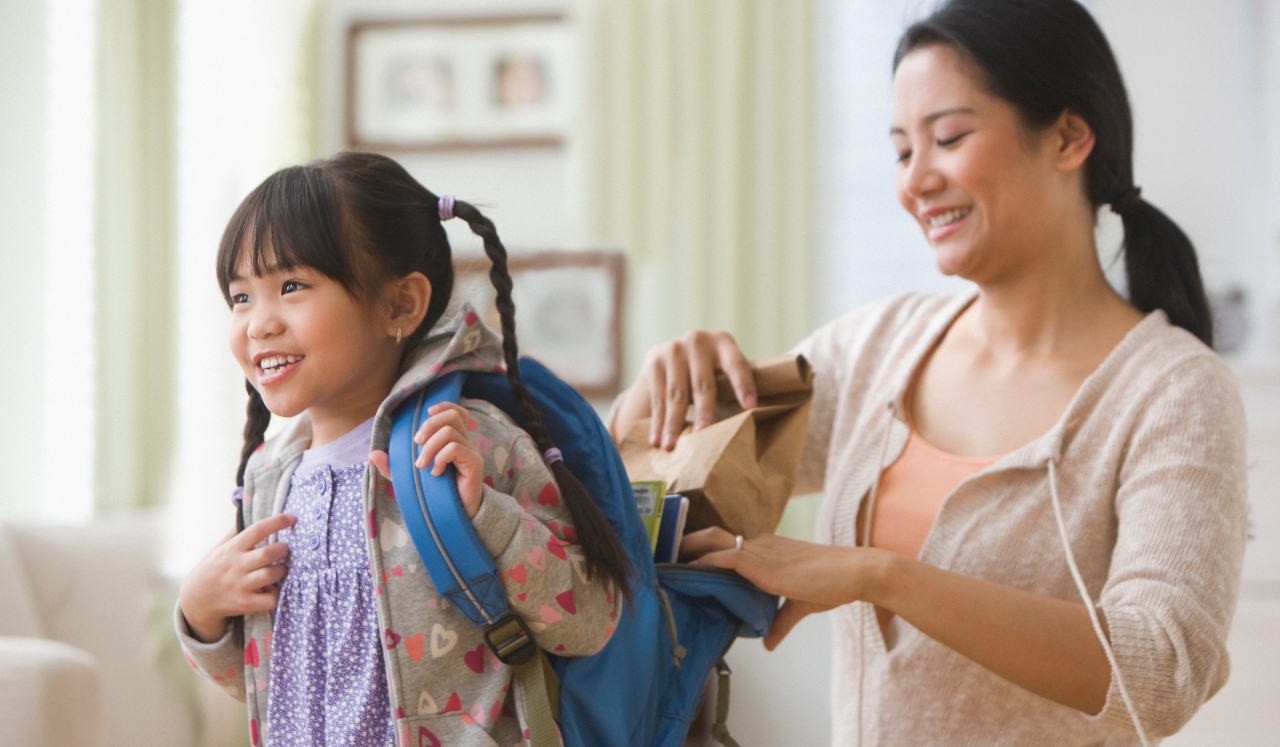As a parent, you’ve got your own homework to do now that school is back in session, says Dr. Alexis Monique Canlas, DO, pediatrician at Children’s Memorial Hermann Pediatrics in West University.
Dr. Canlas provides some proven tips to help you and your family stay healthy during the new school year.
Check in with schools.
Schools can let you know what immunizations and tests are required. Most likely, each child should have their Well Child Exam and athletes should get a sports physical exam if they’re planning to play sports or participate in extracurricular activities. That way, they'll already have the medical paperwork ready in a timely fashion and won't need to miss school for additional pediatrician appointments.
Get your shots.
The entire family should get up to date flu, RSV and COVID-19 vaccines, because those ailments spread more during the school year. Not only are kids vulnerable, but their immediate and extended family members can be at risk or affected by infection.
Receiving vaccines can also be a good time to address any pressing concerns that parents or caregivers have about a child's general health.
Wash your hands.
“Touching is part of the learning process,” Dr. Canlas says. “But handwashing is key. Model good hand hygiene yourself and help children understand that washing their hands very well and using hand sanitizer will help them avoid germs and stay healthier.”
Make hand-washing more fun by associating the activity with a fun song. Wash slowly for at least the time it takes to sing Happy Birthday twice. Ensure that your child is thoroughly scrubbing and drying afterward for the most effective results.
Keep them active.
“At least one hour of activity a day boosts children’s ability to fight germs,” Dr. Canlas says. “You can use hula-hoops at home, or dance in the living room.” Head to playgrounds or parks early, or close to sundown, to keep cooler.
Encourage kids to socialize with friends when they’re outside during recess, since germs can dissipate in nature.
Reset your clocks.
Your kids do better if they wake up and go to bed at the same time during the school year.
“It helps to be consistent with sleep routines,” says Dr. Canlas. “Wind down by reading a book, keeping bedrooms dark and cool and cutting off-screen time at least an hour before bed.”
Adequate sleep—9-10 hours for children younger than 13 years old, then 8-10 hours for teenagers—”is very important for children’s brains to process what they’ve learned and to help keep from getting sick,” Dr. Canlas says.
Explain to older children that their brain is active even when their bodies are sleeping: It repairs muscles, banks knowledge and reboots. Kids’ immune systems can become stronger and less likely to catch an illness, while maintaining an advantage of staying alert in school. If younger kids resist such rest, you can remind them that slumber fuels growth spurts.
Start the day right.
After they get a good night’s sleep, your kids will be more energized if they have a balanced breakfast. If you’re in a rush, eating a banana on the way to school is better than nothing at all.
Produce is on point.
Your family is less likely to fall ill if you’re eating a healthy diet, including fruits, vegetables, legumes, lean meat, and whole grains. “Eating a varied diet that emphasizes fruits and vegetables helps gird the immune system,” Dr. Canlas says.
Drink Up.
“They need to drink enough water to be hydrated,” she says. “Otherwise, their bodies won’t be able to fight off infection as well.”
Reduce your kids' emotional temperature.
Go to all school orientations and tours so you and your children can meet teachers, get to know their school environment, and see old friends or make new ones. They also can try out the school’s playground and check out bus stop locations.
Talk positively about school with kids who are more anxious. “Focus on all the good things that can happen, such as making new friends and learning new things,” Dr. Canlas says. “Kids are less anxious and more excited when they’ve met their teacher, and if they know one friend that goes there, that helps so much.”
Practice makes perfect.
Walk with them to their bus stop, take their route to school and remind them to look both ways at crosswalks and wear their helmets if using a scooter or bicycle. If a stranger approaches, they should alert a teacher or someone with whom they feel safe.


